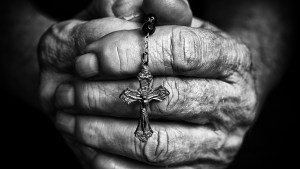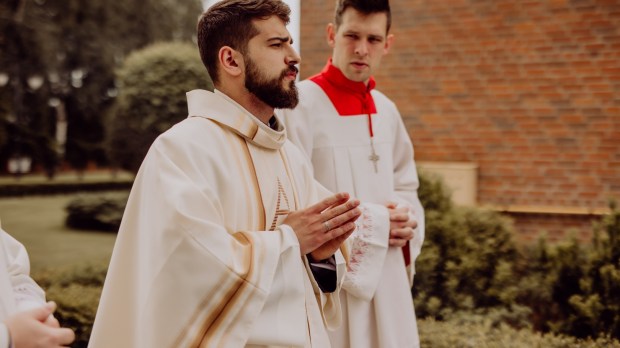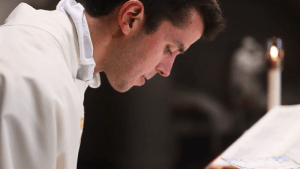Fr. Konrad Nowak’s life is full of unexpected twists and of discerning God’s will in seemingly ordinary events. Aleteia spoke with him about his vocation story.
Aleteia: After high school graduation, you entered the seminary in Lublin, but didn’t stay there too long.
Fr. Konrad Nowak, SDS: Yes, it was a diocesan seminary. I left it after a year of formation. Quite quickly I came to the inner conviction that being a diocesan priest was not what God was calling me to. After the summer I spent while still a seminarian, I decided not to return for a second year. It was a very difficult time for me. I even resented God for the way it turned out. I had decided to dedicate my whole life to Him, I had risked a lot, and suddenly it turned out that the decision I had made – the decision to enter the seminary – was wrong.
As a priest, how do you look back on this year in retrospect? Was it a fruitful time or a lost one?
Fruitful, by all means. I saw that I had a desire to live in a community, which surprised even me, since one of the leading traits of my character is individualism and I’d never before felt the need to belong to any church community. I was an altar boy, of course, but I thought that would be enough. It wasn’t until my stay at the seminary in Lublin that this spiritual need was revealed to me.
The feeling that God wants me to serve Him in a spiritual capacity did not leave me the moment I took my papers from the diocesan seminary. This desire smoldered in me all the time.
After leaving the seminary, I began to consider the path of religious life. I looked for information about religious orders, mainly on the internet. I remember that when I typed a phrase related to men’s religious orders into a search engine, one of the first websites that popped up for me at the time was that of the Dominican Order. I became enthralled with the Dominican charism. This is from the spiritual side, because from a much more down-to-earth perspective, I also really liked the Dominican habit. Actually, I still like it to this day.
And yet you didn’t become a Dominican priest.
After leaving the seminary, I took up a job. I found employment as … a bartender (smile).
Did you evangelize while standing behind the bar?
At first I tried to hide my earlier stay in the seminary. I didn’t want to talk publicly about my past. I myself needed somehow to come to grips with what had happened. But the world is small, and Lublin, even though it’s a provincial city, also turned out to be small. My colleagues and I had mutual friends and the news that I was a former seminarian spread quite quickly. When I was “unmasked,” the nickname “parish priest” stuck to me (laughs).
So you became a parish priest even before you were ordained …
You could say that (laughs).
Colleagues at work were surprised, but in a positive sense, I think. For them, what impressed them was the very fact that someone who was thinking about the priesthood turned out to be an ordinary, cool guy. A buddy with whom you can talk, laugh, and work naturally.
Let’s go back to the Dominicans. It didn’t work out because …?
A candidate for a Dominican friar undergoes the postulancy, which precedes the novitiate. One of the conditions for entering the postulancy is to undergo a vocation retreat or so-called observation, during which the interested party participates in the life of the religious community; the community observes him, and he observes the community. The retreats took place at the Dominican monastery in Warsaw’s Sluzew district.
And somehow during that time – from when I decided to leave the diocesan seminary to the moment I decided to enter the religious seminary, the Salvatorian Fathers – I wasn’t able to go to the Dominican vocation retreats, nor to get to the aforementioned observations. Something kept getting in my way: either I had to take over for a colleague at work who happened to be ill, or I had some kind of exam at the university, because I had also started my studies (I studied national security and theology).
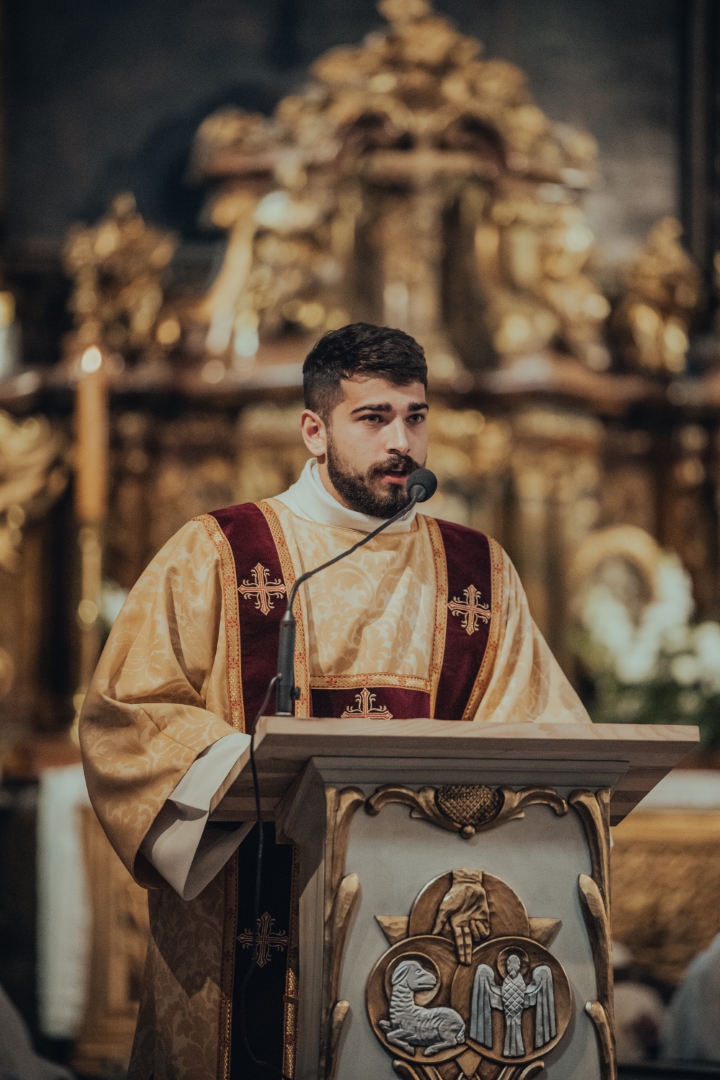
Theology – that makes sense, but national security? After all, you were carrying around the idea of joining a religious order.
I didn’t know what it would be like. I chose the option of “national security” with a view to possibly securing my future.
So, between one seminary and another, you worked behind a bar, made drinks, studied two majors, played music (we’ll talk about that later), thought about joining the Dominicans, and finally decided to become a Salvatorian. That’s quite a cocktail!
That’s how it worked out! (Laughter) I got to know the Salvatorians in the meantime. While I hadn’t personally gotten to know any members of a religious congregation before, I was somewhat familiar with Salvatorian priests, as they helped pastorally at my home parish. And one Sunday I met one of them – Paul. We became friends. In fact, this friendship continues to this day.
Was it at his instigation that you joined the congregation?
No. It’s true that I shared my doubts and thoughts with Paul, including in the context of searching for the path of religious life, but at the very beginning of our acquaintance I asked him not to persuade me to join the Salvatorians. Paul respected this request.
And one morning – without a shadow of exaggeration, this was exactly what happened – I woke up with the decision that I was submitting my papers to the Salvatorians. I simply felt in an instant that what was happening in my life, including this notorious inability to contact the Dominicans, was a sign from God.
The confirmation that I was choosing right this time was the great peace of heart that accompanied me. I called Paul and said that I wanted to apply for admission to the Society of the Divine Savior.
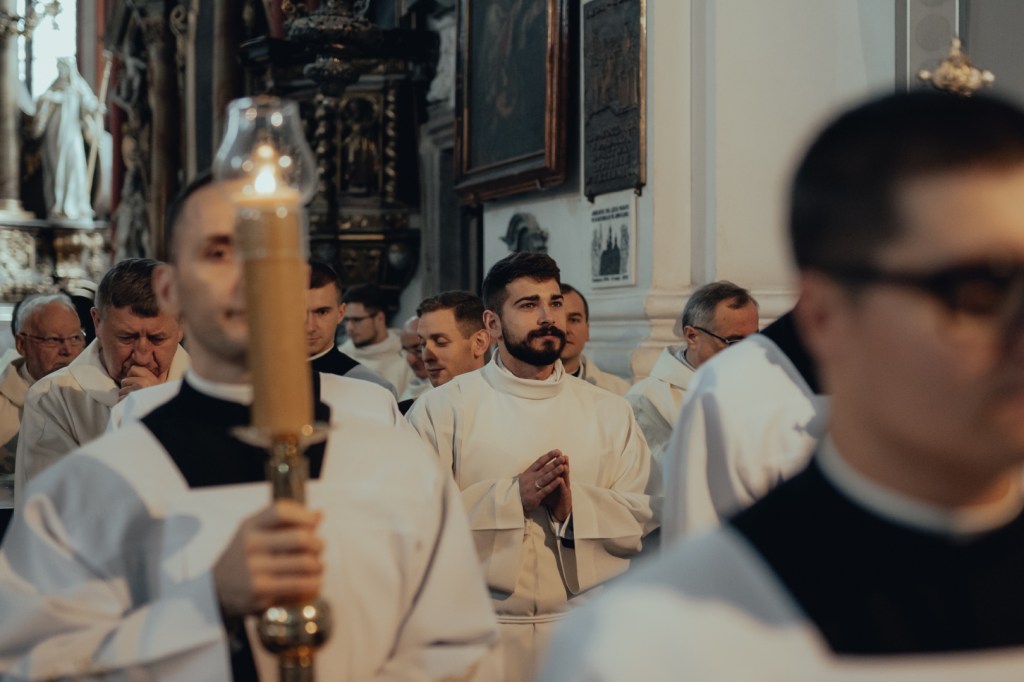
You did your postulancy in a small village between Krakow and Zakopane. Let me ask you directly: how did you feel there? In this silence, in such a relatively remote area? Previously, you’d traveled a lot. As a member of the Gospel Rain music band, you performed on professional stages alongside popular artists, and suddenly you took this leap — a 180-degree turnaround.
I could compare it to a speeding truck colliding with a wall (laughs). At the same time, the Lord God showed me all the time that he was with me. As for music, the period before my postulancy with the Salvatorians was quite intense for me – due to the number of concerts, but also the recording of the album, and later its promotion.
In July 2016, World Youth Day was taking place. In the same month, July 15 to be exact, the postulancy was starting. When I applied for admission to the postulancy, I asked the provincial to allow me to start my formation a little later, because I wanted to participate in the musical events I had planned even earlier with the Gospel Rain band. These events were to culminate with us leading a meeting between Pope Francis and the volunteers on July 31 at Krakow’s Tauron Arena.
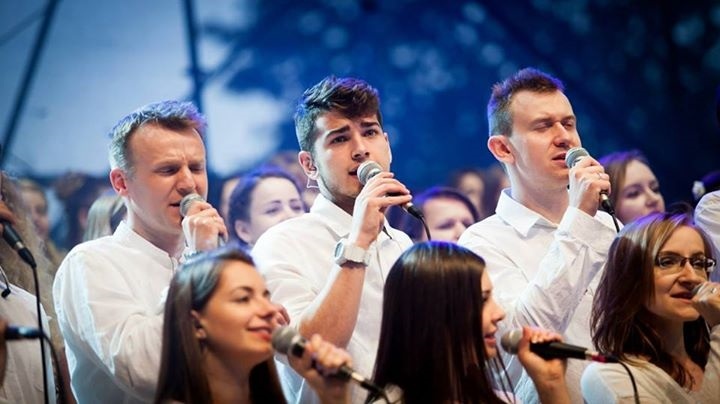
The provincial agreed. However, he put a condition: I was to appear at the postulancy on August 1. Accordingly, on July 31 I still played with Gospel Rain and Golec uOrkiestra for the pope at the Tauron Arena, and the next day I began my novitiate.
Father Konrad Nowak SDS belongs to the Society of the Divine Savior. He serves at the parish of the Blessed Virgin Mary Mother of the Savior in Mikolow.
